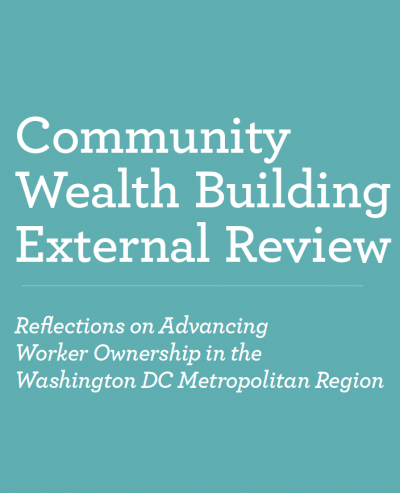
During the fall of 2012 WRAG engaged a few funders to discuss the potentional of creating a worker-owned cooperative in the metropolitan region after recognizing the success of similar models, such as Evergreen Cooperatives in Ohio. In December, the group agreed to explore the viability of such an entity in the DC region and engaged the Democracy Collaborative to complete a feasibility study. The study was “well done and very thorough.” It noted several sectors in which the potential entity could operate, as well as outlined potential partners, including additional funders and anchor institutions.
Impressed with the study, and its results, the funders decided to create an RFP to select an organization to develop a "business plan" for the new entity. In February 2013, City First Enterprises 9CFE), a DC-based bank holding company and CDFI, was awarded a contract for services. The business planning process was challenging and rewarding. With respect to challenges, CFE had limited access to prior research as well as leaders of the Evergreen initiative and Democracy Collaborative team members, who were no longer involved in the effort. With respect to opportunities, the planning process garnered substantial support from funders in the region, and regional educational and medical institutions expressed a willingness to engage. The process also yielded the potential for a contract in Prince George's County, allowing the first proposed business to be located outside the nation's capital, in keeping with a regional approach.In the summer of 2015 the first business Community Clean Water Management Group (CCMG) was created in Prince George's County. Based on the likelihood of storm water management contracts through Prince George's County's public-private partnership with Corvias, the business was created with a start-up board and approximately $90,000 in funds. Incorporation proved challenging as cooperatives were not a recognized structure in Maryland; therefore, the business became a holding company designed with principles such as shared decision making and profit-sharing among workers. There were also other regulatory issues, such as business residency requirements, that proved costly and time consuming for the new business, which ultimately was not able to compete for contracts. With limited funding, lack of paying contracts and little prospects for business development in the next six months, CCMG closed in October 2015.
Read the full report at Consumer Health Foundation
Go to the GEO front page

Add new comment